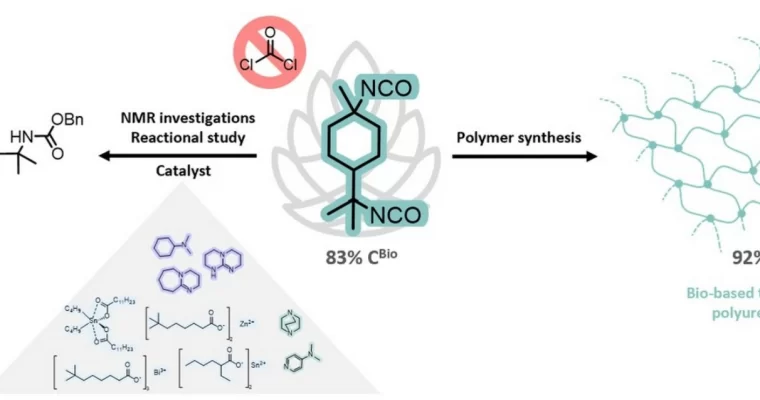For a world-renowned brand that began with one humble potpie, Amy’s Kitchen has plenty to celebrate this Sept. 23, National Great American Potpie Day. The occasion is typically commemorated by sharing recipes for potpies and, of course, eating the baked treats that started in their most primitive form during the Roman Empire and eventually shot to popularity in 16th-century Britain.
The Petaluma, California, company, which launched in 1987 and has products available in 11 countries, now offers more than 250 products and produces up to 1 million meals every day. Its broccoli potpies, vegetable potpies, and dairy-free vegetable potpies are staples in the line. The dairy-free version is a savory treat for the senses with organic carrots, peas, potatoes, and tofu in a creamy sauce nestled inside a buttery (but butter-free), flaky crust. Still, only using ingredients you can pronounce, Amy’s Kitchen serves foods fashioned with love.
Amy’s Kitchen President Paul Schiefer admits he always gets nostalgic when he thinks back on how his aunt Rachel and uncle Andy Berliner got the idea to launch Amy’s Kitchen when they couldn’t find any ready-made meals that were organic, vegetarian, and delicious. Rachel was pregnant with their daughter Amy at the time and required to be on bed rest after pulling a muscle. Andy was left to do the cooking and looked back on his own childhood for some inspiration. “Potpies [were] very popular,” Andy Berliner told news website SFGate. “All kinds of people grew up eating Swanson’s turkey and chicken potpies, [but later, many became] vegetarians and couldn’t eat them anymore. Our theme [became], ‘Now, you can eat potpies again.’”
After some experimenting in their kitchen, the first Amy’s Kitchen organic vegetarian potpie was created. It was tasted over a table — the first piece of furniture the couple ever bought, which remains in their home today. While Rachel Berliner told SFGate the initial round of potpies wasn’t perfect, they continued trying new recipes and enlisting the help of family and friends until they got their potpie just right. Rachel Berliner’s mother, Eleanor, ended up creating the recipe — and the rest is history. In June 1988, a year after the first potpie was made, the couple opened their first full-size kitchen in Sonoma County, staffed with just a handful of employees. Today, Amy’s Kitchen is available in 11 countries worldwide. Its 250 organic frozen foods, which suit a variety of diets from gluten, vegan, dairy, tree, corn and nut free, have a loyal fan following.
Why Paul Schiefer Will Always Be a Potpie Guy
Fast-forward to 2023, Schiefer is now spearheading the brand. He admits picking a favorite food from its extensive collection of cuisines is difficult; however, the vegetable potpie is still always his go-to.
“I’ve been here so long and through so many different types of products. I always have the favorite of the day, but I think at the end of the day, I always have to give credit to the humble vegetable potpie,” Schiefer said on the “Responsibly Different” podcast. “The one that really started the company.”
Schiefer added he has such a fondness for that particular potpie because it evokes memories of home.
“We all have our comfort foods, but for me, that potpie, when I was in junior high, my mom used to bake it in the morning,” Schiefer recalled. “She’d actually bake it, not microwave it, so it’d be like 45 minutes of baking it and then stuff it into a thermos, and then it would sit for four hours in this thermos. So there’s no more crispy, flaky crust. It was more of a potpie mash at that point. But somehow, just the fact that my mom baked that for me [meant so much and] it came from my uncle and aunt’s company. It was just my favorite thing when I got that for my school lunch.”
Schiefer adds that growing up eating Amy’s Kitchen potpies made him even more excited to share with consumers everywhere that meal that continues to bring him so much joy.
“For some reason, the potpie — every time I eat it — still brings me back to those early days and that sense of comfort,” Schiefer revealed. “But I do love pretty much everything that we make. Depends on the day.”
Schiefer’s in good company. Everyone from celeb chef Wolfgang Puck to supermodel Chrissy Teigen and TV personality Lauren Conrad confess their universal love for potpies, especially when the chillier fall weather arrives.
Fans Share Why They Feel Amy’s Kitchen Potpie Is a Crust Above the Rest
Amy’s Kitchen potpies have gained a devoted fanbase over the years. Food fans have taken to social media to share their devotion to the product that catapulted Amy’s Kitchen to fame.
“Potpie is one of my favorite things in life, but I don’t always want to make it from scratch so this is the perfect one serving size for me to enjoy and get my potpie fix,” Amanda W. wrote about Amy’s Kitchen vegetable potpie on Influenster.
A woman in the City of Brotherly Love also shared her love for Amy’s vegetable potpies on Influenster.
“Living in Pennsylvania, I am a total potpie lover. It is very difficult, however, to find a meatless pre-prepared potpie,” Alicia M. wrote. “For me, the inside of this potpie is perfect. Very creamy with a nice variety of bite-size vegetables and tofu inside. The crust is also very good — slightly crumbly and a little buttery.”
Rebecca Gilbert, yummyplants.com founder and author of It’s Easy To Start Eating Vegan, raved about Amy’s Kitchen nondairy vegetable potpie.
“I hadn’t eaten a potpie in years … pretty much since I decided to follow a plant-based diet,” Gilbert shared. “So I was thrilled to discover this vegan potpie from Amy’s in the freezer section at Whole Foods. Although you can microwave the potpie, I cooked it in the oven. It’s Yummy Plants approved.”
Amy’s Kitchen potpies also snagged a seal of approval from blogger Sarah E. Jahier of thespookyvegan.com.“I was in the mood for some comfort food, so I picked up the vegan version of Amy’s vegetable potpie. The potpie was filled to the brim with tons of veggies, tofu, and sauce. It wasn’t just all crust or just all sauce — everything was balanced and the flavors and different textures all came together,” Jahier wrote.










